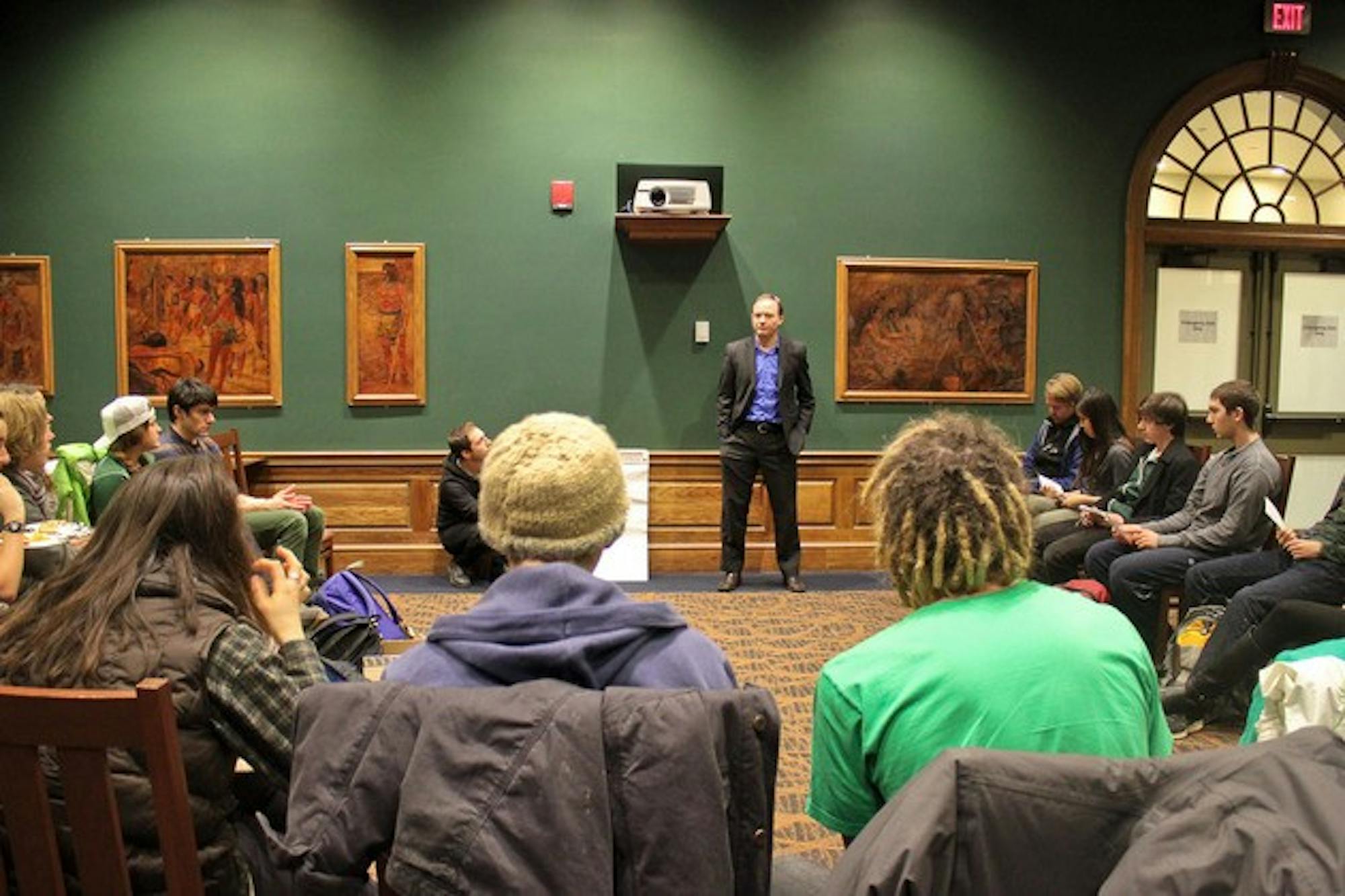Altemose, executive director of the Better Future Project, has extensive involvement in climate change activism, said Leehi Yona '16, who introduced the speakers. Riester is a campus outreach coordinator at 350.org and Better Future.
The talk featured a heated discussion about the implications and impact of climate change, potential strategies to encourage Dartmouth to divest and an examination of past successful divestment efforts.
Altemose emphasized the crisis posed by climate change.
"It is a lot worse, to be frank, than people are making it out to be," he said. "I think we need to speak the truth about these issues."
Altemose opened the panel discussion with an anecdote about Russia's rising temperatures. In its recorded history, Moscow had never seen temperatures as high as 100 degrees Fahrenheit before the summer of 2010, he said. A heat wave caused forest fires and led to the deaths of 11,000 people in Moscow and 50,000 across Russia due to smoke inhalation or heat exhaustion.
The forest fires caused significant shortages in wheat production in Russia, Altemose said. This forced to Russia to limit its wheat exports to the rest of the world.
Altemose linked this contraction of wheat exports to the Arab Spring, claiming that Middle Eastern and North African countries that import staples faced a food shortage and increased social tensions as a result.
"It is now the question of whether climate changes will be huge or drastic," Altemose said. "It is scary, but it's real."
He continued to draw out the potential drastic effects of climate change by highlighting the effect of rising temperatures on the world's population.
If there were a global temperature increase of four degrees, there is no guarantee that the human race could adapt, he said, referring to a 2012 World Bank report. With a five-degree rise in temperature, the carrying capacity of the earth's resources would be less than one billion people.
From 2012 to 2030, reports have suggested that 100,000 people will die from pollution from fossil fuels, Altemose said.
"If we transfer from fossil fuels, we can save lives as we know it," he said. "It is pretty simple what we need to do. We need to push for wind turbines, electric cars and weatherization of homes."
Riester spoke about the divestment movement's objectives.
The first focus of the divestment movement should be to increase student power and build the student climate change movement, Riester said. Secondly, society should view fossil fuel companies to be on similar footing with slavery or tobacco companies, he said.
"It needs to be immoral to hold money in these companies," Riester said.
The movement's final goal should be to reduce the amount of money in fossil fuel extracting companies.
One problem with the American political system is that an oil company can "buy off" politicians, Riester claimed, so politicians are afraid to vote against fossil fuel companies.
"All they need is one day of profit to buy off any number of senators," he said.
Dartmouth's divestment from companies who supported the Apartheid movement in South Africa shows that it can also divest from fossil fuel companies, Riester said.
Sterling College, Unity College and Hampshire College have all eliminated their investments in fossil fuel extracting companies, which Riester said had little impact on their endowments.
About 20 people attended the panel discussion, which was held in Paganucci Lounge.
Victoria Pan '16, one of the co-organizers for the group, said she was pleased with the turnout and optimistic about the future of the movement.
"We did have a really good showing," she said. "A lot of people stayed to the very end. I do believe we're gaining momentum and moving forward."
The group's immediate goals are to continue educating fellow students and build support across campus.
Yona said she enjoyed the lecture's message and is looking forward to working with the administration in an open manner.
Philip Mannes '16 was put off by the rhetoric of the panel, though he said he appreciated the ethical questions raised by Divest Dartmouth.
"The first speech was a bit alarming and, I think, a scare tactic more than anything else," Mannes said in an email. "I was left somewhat unconvinced."




